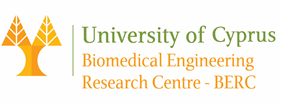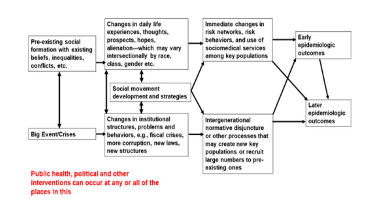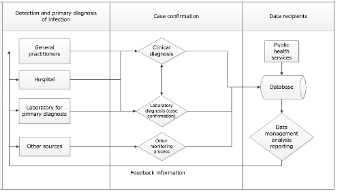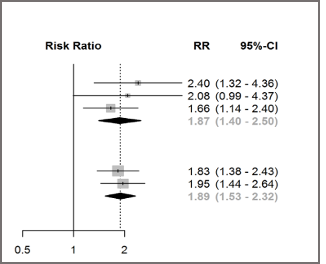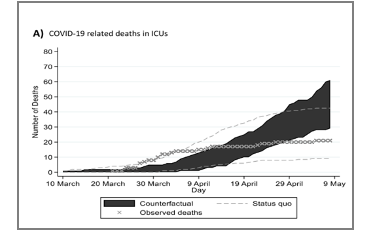 |
LABORATORY OF MEDICAL STATISTICS, EPIDEMIOLOGY & PUBLIC HEALTH
|
"Data analytics, digitalization, and modelling are imperative for managing public health emergencies"Dr Nikolopoulos is Associate Professor of Epidemiology and Public Health at the Medical School of the University of Cyprus. He is a graduate of Dentistry (1998 - National and Kapodistrian University/NKUA in Athens, Greece) and holds a MSc (2002) in Biostatistics and a PhD (2008) in Epidemiology from the Department of Hygiene, Epidemiology, and Medical Statistics of the NKUA Medical School. His 18-month post-doctoral training and research at the National Development and Research Institutes in New York City and in Athens (2012-2014) was funded, following international competition, by the International AIDS Society and the United States (US) National Institute on Drug Abuse (NIDA). He worked as an expert in HIV epidemiology at the Greek Centre for Disease Control and Prevention (2002-2016). He was site (Athens, Greece) principal investigator of a US-NIDA study on HIV prevention (TRIP) and led studies on environmental epidemiology (BeAT Heat) and HCV funded by the Cyprus Research and Innovation Foundation and the European Centre for Disease Prevention and Control, respectively. Dr Nikolopoulos is fellow member of the American College of Epidemiology (FACE), certified in Public Health (CPH) by the US National Board of Public Health Examiners, and editorial board member of the American Journal of Public Health. He was also member of the National Committees in Cyprus for HIV, HCV, and the COVID-19 pandemic. He has authored 215 peer-reviewed papers and received 7,850 citations in the literature (Google Scholar), with Hirsch indices: h=40 (Scopus) and h=48 (Google Scholar), as of August 2024.
Associate Professor Georgios Nikolopoulos Epidemiology and Public Health Head of the Laboratory of Medical Statistics, Epidemiology and Public Health Medical School, University of Cyprus
Understanding the role ofBig Events in Public Health EmergenciesGreece, my home country, experienced a severe economic and social crisis, which was soon followed by a significant HIV outbreak. Drawing on my formal training and experience in epidemiology, as well as the knowledge I gained during my postdoctoral fellowship in sociology, social networks, and qualitative research methods, I became involved in interventions and research to understand how large-scale processes, or Big Events—such as economic crises, socioeconomic transitions, wars, and ecological disasters—affect the spread of HIV. Together with colleagues, I demonstrated that social and economic factors such as homelessness, unemployment, Gross Domestic Product per capita, and income inequality are associated with the likelihood of HIV outbreaks in Greece and other European countries. We have also further been developing theories on how these upstream processes (Big Events) have influenced and may continue to influence the epidemiology of diseases. Finally, we have been working on developing scales to measure the pathways from Big Events to disease risk.
|
Preventing transmission ofInfectious diseasesI led efforts in Athens, Greece, and Nicosia, Cyprus, to implement the US NIDA-funded Transmission Reduction Intervention Project (TRIP), a social network-based approach to identifying individuals with recent HIV infection. Identifying people recently infected with HIV is crucial both for the individual, who can benefit from early treatment, and for public health, as most transmissions occur in the early stages of infection. TRIP demonstrated that social network-enriched contact tracing, starting with recently infected individuals rather than those with longer-term HIV, is effective and free of serious adverse effects. This finding could enhance traditional contact tracing methods used by public health agencies and contribute to achieving the first step of the 95-95-95 strategic goal set by the United Nations' HIV/AIDS program (UNAIDS). Additionally, the World Health Organization, informed by evidence from our work and that of other scholars, now recommends using social networks to enhance HIV testing. We are also developing sophisticated methods including software to study both direct and indirect causal effects within the TRIP sociometric network.
Synthesis ofScientific EvidenceThe ever-increasing volume of scientific information makes it imperative to develop efficient methods for evaluating study data. For over 15 years, I have focused on creating and refining methods, including software, for evidence synthesis and the application of meta-analytic models to estimate pooled effects from published studies and explore between-study heterogeneity. My meta-analytic work has made significant contributions to understanding various diseases, including HIV, HBV, HCV, breast cancer, and inflammatory bowel disease. For example, systematic reviews conducted by my team have summarized and evaluated the evidence on breast cancer risk factors, provided updated estimates of HCV prevalence in Europe, and assessed the effectiveness of condoms in reducing heterosexual transmission of HIV.
Developing andImproving Disease Surveillance SystemsDisease surveillance is a critical component of public health, especially during emergencies, providing the foundational data needed to monitor, prevent, and control the spread of infectious diseases. My research focuses on developing and refining systems that track disease occurrence, analyze trends, and detect potential outbreaks in real-time. By integrating, improving and digitalizing traditional methods, such as case reporting and laboratory testing, with advanced technologies like participatory surveillance, syndromic surveillance, wastewater-based surveillance, artificial intelligence, geographic information systems, and big data analytics, my team and I aim to enhance the accuracy and timeliness of disease detection at the national, regional, European and global level. My work also examines the role of global and local factors—such as population mobility, climate change, and social determinants of health—in shaping disease patterns and affecting the capacity of surveillance systems to capture these patterns. Ultimately, my research aims to contribute to building more resilient surveillance systems capable of responding swiftly and effectively to future public health and pandemic threats.
|
ModellingDisease ProjectionMy research interest lies also in disease modelling and projection, focusing on developing and applying mathematical and statistical models to predict the spread and impact of infectious diseases. By integrating data analytics with advanced modelling techniques, I aim to understand disease dynamics, estimate future trends, and assess the effectiveness of interventions. This research is crucial for informing public health strategies, optimizing resource allocation, and ultimately reducing the burden of diseases on populations. My work covers HIV, HCV, and cancer.
|
|
SELECTED PUBLICATIONS
|
